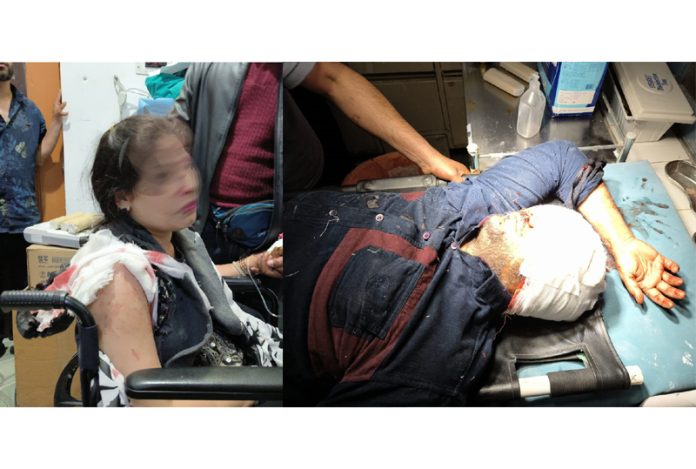
The recent terror attacks in South Kashmir underscore a grim reality: the region remains ensnared in a cycle of violence that spares neither local leaders nor innocent visitors. Former Sarpanch and BJP worker Ajaz Ahmad Sheikh was brutally murdered in Shopian district, while two tourists, Farah and Tabrez Khan from Jaipur, were injured in a separate incident in Pahalgam, Anantnag. Sheikh, a former Sarpanch, embodied the efforts of many who strive to foster democratic governance and development despite the omnipresent threat of violence. The attack on Sheikh highlights the dangerous conditions under which local politicians operate, often facing threats from terrorists aiming to undermine democratic institutions and perpetuate a climate of fear and instability. On the other hand, the attack on tourists in Pahalgam, a popular destination known for its scenic beauty, further compounds the tragedy. Tourism is a vital component of Kashmir’s economy, offering livelihoods to lakhs of residents.
The targeting of tourists strikes at the heart of the region’s economic stability, threatening the fragile recovery of an industry already reeling from years of conflict and the recent impacts of the COVID-19 pandemic. The injuries sustained are not just physical wounds but also symbolic scars on the region’s tourism sector.
These attacks occur in a politically charged atmosphere as the Anantnag-Rajouri constituency prepares for the rescheduled vote on May 25. The strategic timing of these attacks appears to be aimed at disrupting the electoral process. Such violence is a tactic often employed by terrorists. Everyone has expressed solidarity with the family, but mere condemnation is insufficient. The Government must take concrete measures to enhance security for political workers and ensure a safe environment for the electoral process. This includes bolstering intelligence networks, increasing the presence of security forces, and engaging with local communities to foster trust and cooperation.
Since the abrogation of Article 370, Jammu and Kashmir has undergone a significant transformation. The region no longer experiences shutdowns or stone-pelting calls. Separatist movements have receded, allowing the people of the valley to enjoy true freedom. Tourists are flocking to almost every part of Kashmir, and the bustling nightlife in Lal Chowk is a testament to the profound changes witnessed over the past five years. However, terror masterminds across the border are struggling to accept this reality and are making every effort to create unrest in Kashmir.
Simultaneously, incidents across various districts in Jammu and Kashmir are a matter of serious concern. Despite some successes, the masterminds behind the recent various terror attacks remain at large. Multiple terror cells continue to target the army, civilians, and political figures at will. Certain districts are experiencing repeated terror incidents, which cannot be ignored. The recent surge in terror incidents is not random; they are well-planned and spread across Jammu and Kashmir to create widespread chaos. Terrorists have marked their presence again and again, and the security setup must respond adequately and forcefully. The responsibility falls on the Jammu and Kashmir Police to develop a robust strategy to counter these threats. On-ground intelligence must be strengthened to apprehend sleeper cells. Reactive measures alone cannot prevent future attacks. Proactive and consistent policies need to be drafted and implemented. Security forces must increase the cost of locals supporting terrorists.
As the region approaches the May 25 vote, the Government, security forces, and local communities must work together to ensure a peaceful and fair electoral process. Any existing loopholes must be addressed immediately. The JKP and other security agencies will definitely give a strong response to any attempts to disrupt the current peace. Consistency is crucial in the fight against terrorism; security agencies must stay at least one step ahead of the terrorists. The only effective strategy is to eliminate terror cells before they strike.

